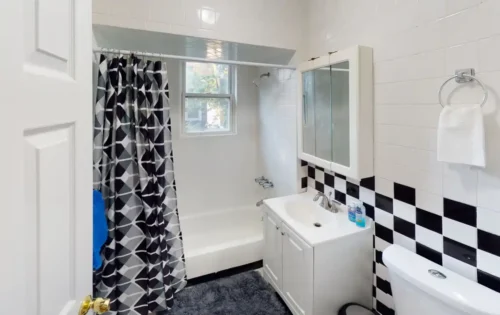What Are Sober Living Homes?

A minimum stay of three months is recommended, but many benefit from a longer stay for sustained sobriety. Halfway houses serve as the halfway point between an institution and independent society, with residents usually coming from either correctional or inpatient treatment facilities. “If there’s not a ‘perfect’ fit, you may still benefit from the structure, support and monitoring that a sober living house provides until you feel more confident in your sobriety,” says Dr. Kennedy. Level IV employs an organizational hierarchy of credentialed staff and adds on clinical and administrative supervision.
Are Sober Living Homes Effective?

Choosing the right one depends on each person’s stage of recovery and specific needs. If you are ready to take back control of your life and enter addiction treatment, contact a treatment provider today to explore your rehab options. You can also explore our rehab directory to find treatment options, including sober living homes, near you. Think of sober living as your support net as you practice new skills, gain new insight and shape your new life in recovery with other people who are possibly facing the same challenges. Sober-living homes provide a strong support network and community to help you safely navigate the tough spots and triggers you may encounter. A Level I sober living home typically does not have any paid staff and relies on its residents to monitor behavior and enforce policies and procedures.

Discover the power of inpatient treatment: essential for mental health care and holistic recovery.
- An often-overlooked aspect of transitioning is the importance of building a strong support network.
- Some residents have family members or friends to help them pay for sober living.
- A sober living house provides individuals recovering from substance use disorder with a safe place to live before they’re ready to return to their former lives.
- If you are seeking drug and alcohol related addiction rehab for yourself or a loved one, the SoberNation.com hotline is a confidential and convenient solution.
- Everyone has a unique experience of recovery from drug addiction or alcoholism, and the best sober living communities account for this with a flexible approach.
Whether it’s finding your footing in the world again or building a network of support, these homes are there to guide and support you every step of the way. So if you’re ready to take that brave step toward sobriety, know that sober living homes are ready to welcome you with open arms and a path forward. Sober living homes are transitional living spaces for individuals recovering from drug and alcohol addiction. Once you leave the structured environment of an inpatient rehab, jumping back into your old life can be challenging. This is where sober living homes come into play, providing a supportive community environment conducive to recovery. Another significant benefit of sober living houses is the focus on equipping residents what is a sober living house with essential life skills and coping mechanisms necessary for maintaining sobriety in the long term.

Networking and Support Systems
- At Ascension House, we understand that recovery is a journey, and you don’t have to face it alone.
- The Affordable Care Act (ACA) declares that insurance providers ought to include treatment for substance abuse disorders.
- For sober living house residents, there comes a point where you feel ready to move back into a more conventional living situation where you can continue your recovery.
- Whether you’re coming from a rehab program or just need a supportive place to stay sober, understanding what a sober living house offers can help your recovery.
- Some homes require signing out when leaving the home and signing in when returning.
Sober living houses can assist in educating drug users and reducing the chance of relapse. One study into Oxford House recovery homes found that they reduce relapse by providing closer monitoring and referring additional services to residents with =https://ecosoberhouse.com/ a history of severe addiction. Incorporating sober living homes into your recovery journey can significantly increase your chances of long-term sobriety. They offer a unique blend of independence, structure, and support tailored to those in recovery.
What Is A Sober Living House?
Whether you’re transitioning from an inpatient facility or looking for additional support post-rehab, a sober living home could be an excellent step towards sustaining your sobriety. Embarking on the journey to sobriety isn’t a solo trek; it’s a path best navigated with support and structure. That’s where sober living homes come into play, offering a bridge between an intensive treatment program and the realities of Substance abuse the outside world.
- At this level, a house manager may reside in the house and will typically be a peer in long-term recovery.
- Going to a sober living house has been proven to support sobriety efforts, with results ranging from a decreased amount of relapses to long-term sobriety.
- The Journal of Substance Abuse Treatment found that residents in sober living houses had far fewer instances of substance use compared to those without this support.
- Officials worked tirelessly to draft an ordinance that would balance the needs of people recovering from substance abuse, while addressing impacts to neighborhoods, he said.
- The staff employed by sober living communities will be vetted and credentialed, giving you the confidence of a robust support system.
- That’s when sober living can help with the transition from rehab to your normal environment.
- Despite the enormous need for housing among the offender population, SLHs have been largely overlooked as a housing option for them (Polcin, 2006c).

